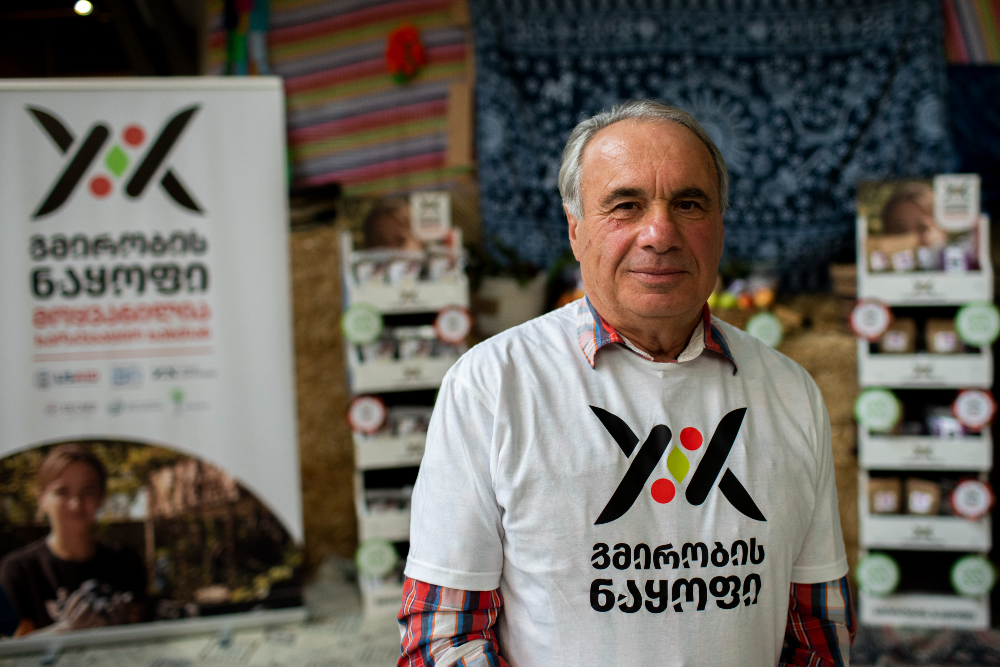20% of Georgia is occupied by Russia. The administrative boundary line (ABL) along occupied South Ossetia is not clearly marked, and there is a constant threat of creeping ‘borderisation’ where village land is illegally fenced off by Russian forces. Villagers near the ABL can find their own garden is on occupied territory from one day to the next. A farmer wishing to plough their fields, or even just wanting to visit a graveyard in another village, can suddenly find themselves on the wrong side of the ABL and be kidnapped by Russian border forces.
This constant physical threat, psychological pressure and financial insecurity has prompted many residents to flee. Zinc’s audience research found that many residents feel abandoned by wider Georgian society, and are vulnerable to Russian propaganda promoting defeatism and positioning Russia as a natural economic partner.
Nevertheless, some heroic villagers remain and continue to farm their land in the face of Russian occupation – like Giorgi, a farmer from Tseronisi village, who explained: “The people who were afraid, left. However, the opposite should happen – people should return to strengthen the village. I’m not going anywhere, and I’ll try harder if I have support.”
As part of the USAID Information Integrity Program, Zinc employed its co-creation methodology to bring together local organisations and stakeholders, and design an intervention with an objective to encourage the Georgian population to demonstrate solidarity and build the resilience of ABL communities by buying local products.
The resulting campaign – Fruits of Heroism – has been delivered through the Institute for Development of Freedom of Information (IDFI), with the support of the Georgian Retail Association and the Georgian Farmers’ Association, who helped ABL farmers obtain the GeoGap quality standard.
Since October 2022, fruit and dried fruit products produced by ABL farmers are being sold in major supermarket chains including Carrefour, Zgapari and Smart in Tbilisi and several other towns under the Fruits of Heroism brand. The farmers have also been able to sell their produce at several different open-air markets and Christmas fairs.
Zinc supported the promotion of the Fruits of Heroism campaign through creation of branding, instore materials, advertising and through campaign materials including videos. The public warmly responded to the campaign – one social media comment included “God bless you, our unarmed border guards! It’s hard to live on land divided by the enemy, under daily fear, your life there is equal to heroism!”
Sales have widely exceeded the farmers’ expectations. Many of them have seen their revenue skyrocket, and have been hiring new staff to meet the surge in demand. In the first two months of the campaign, farmer Leri sold four tonnes of apples, while Lakob sold over 2,700 churchkhelas. Ekaterine, who sold 137kg of dried plums through the Christmas markets, said: “Our orchards are literally two steps away from the signboard that shows Russia is the occupant. Buying our products is a great support for us.”
Farmer Luri from Dvani village explained: “It is important for me to remain where I currently live, and fight in whatever way I can. Each sold churchkhela produced near the occupation line is a big investment – locals will be employed, and people will stay to live in the village.” David from Dirbi village expressed similar sentiment when he said: “Each product sold gives me strength not to stop.”

